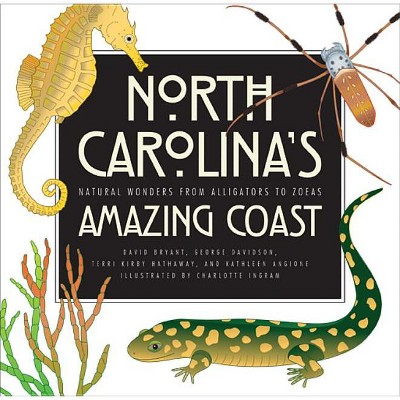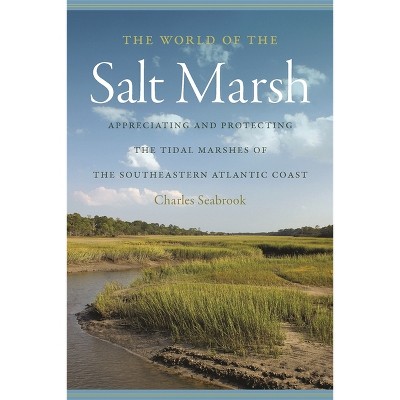Sponsored

Fallen Forests - by Karen L Kilcup (Paperback)
In Stock
Sponsored
About this item
Highlights
- In 1844, Lydia Sigourney asserted, "Man's warfare on the trees is terrible.
- About the Author: KAREN L. KILCUP is a professor of English at the University of North Carolina at Greensboro.
- 512 Pages
- Literary Criticism, American
Description
About the Book
Fallen Forests contributes to scholarship in American women's writing, ecofeminism, ecocriticism, and feminist rhetoric, expanding the literary, historical, and theoretical grounds for some of today's most pressing environmental debates.Book Synopsis
In 1844, Lydia Sigourney asserted, "Man's warfare on the trees is terrible." Like Sigourney many American women of her day engaged with such issues as sustainability, resource wars, globalization, voluntary simplicity, Christian ecology, and environmental justice. Illuminating the foundations for contemporary women's environmental writing, Fallen Forests shows how their nineteenth-century predecessors marshaled powerful affective, ethical, and spiritual resources to chastise, educate, and motivate readers to engage in positive social change.
Fallen Forests contributes to scholarship in American women's writing, ecofeminism, ecocriticism, and feminist rhetoric, expanding the literary, historical, and theoretical grounds for some of today's most pressing environmental debates. Karen L. Kilcup rejects prior critical emphases on sentimentalism to show how women writers have drawn on their literary emotional intelligence to raise readers' consciousness about social and environmental issues. She also critiques ecocriticism's idealizing tendency, which has elided women's complicity in agendas that depart from today's environmental orthodoxies. Unlike previous ecocritical works, Fallen Forests includes marginalized texts by African American, Native American, Mexican American, working-class, and non-Protestant women. Kilcup also enlarges ecocriticism's genre foundations, showing how Cherokee oratory, travel writing, slave narrative, diary, polemic, sketches, novels, poetry, and exposé intervene in important environmental debates.Review Quotes
Beautifully written, meticulously researched, and brilliantly argued, Fallen Forests is a major contribution to ecocriticism and to the study of nineteenthcentury American women writers more broadly. Kilcup's impressive expertise animates this engaging, original analysis of how canonical and noncanonical American women writers' acts of environmental representation were profoundly shaped by class, as well as by gender and race. A remarkably dexterous and insightful work of ecocritical scholarship.
--Michael P. Branch "editor of Reading the Roots: American Nature Writing before Walden"Kilcup's career as a noted scholar of American women's writings is on full display in this book. Analyzing the works of nineteenth-century women writers from diverse racial, ethnic, and class backgrounds, Kilcup illuminates these writers' complex, often conflicting interactions with the natural world.
--Tina Gianquitto "author of "Good Observers of Nature" American Women and the Scientific Study of the Natural World, 1820-1885"Scholar Kilcup is clearly passionate about American women's writing, as evidenced in this meticulously researched text. . . . This book is for academic audiences, especially readers with an interest in 19th-century American literature, women's literature, and ecofeminist criticism.
--Stacy Russo "Library Journal"Unprecedented in its refusal to adhere to narrow understandings of environmental experience, Fallen Forests forges an ambitious reconsideration of environmental writing in the early United States. Kilcup unearths a wide range of women's early engagement in issues central to environmental justice. She pursues authors' labor status, physical ability, spiritual affiliation, and geographical location alongside critical historical events, including the early resource wars that accompanied EuroAmerican settlement of western lands, the influence of social standards that propelled the fashion industry and conspicuous consumption, and the complex relation between bodies, cultural beliefs, and geography that informed Native and Mexican American land claims. Welcome and timely, Fallen Forests reveals early America's engagement with issues that continue to grip the nation's environmental injustices.
--Rochelle L. Johnson "author of Passions for Nature: Nineteenth-Century America's Aesthetics of Alienation"In this wide-ranging, deeply insightful book, Kilcup both extends and challenges current thinking about American women's writings about the environment in the long nineteenth century. . . . Adding to the field of rhetoric, or women's rhetoric, this book makes a valuable contribution to making 'audible' many now-forgotten women's voices.--D. J. Rosenthal "Choice"
Karen Kilcup's Fallen Forests expands our sense of American literary en- gagement with the nonhuman world well beyond the established canon.... Kilcup identifies a more capacious tradition of 'environmental literature' whose primary project is not to foster ecological awareness but rather to work for environmental justice.--Timothy Sweet "Environment and History"
About the Author
KAREN L. KILCUP is a professor of English at the University of North Carolina at Greensboro. Her many books include Fallen Forests: Emotion, Embodiment, and Ethics in American Women's Environmental Writing, 1781-1924 (Georgia), Teaching Nineteenth-Century American Poetry and Soft Canons: American Women Writers and Masculine Tradition.Shipping details
Return details
Trending Poetry











